Innovation Ecosystems for AI-Based Education, Training and Learning
Innovation Ecosystems for AI-Based Education, Training and Learning
November 13th, 2017 8:30a-5:30p
Stanford University, Bechtel Conference Center
Expert teachers and coaches provide responsive feedback to learners to help them discover rules, patterns and insights and practice applying them. Today, advances in artificial Intelligence have codified the design of feedback, leveraging rule-based software to analyze the user (and sometimes the context), filter content, and present personalized information and interactive experiences.
Interactive agents that can access the “global brain” to tutor children and adults are already available. Advanced versions can identify where learners have demonstrated competence and even generate new problems to improve instructional materials and comprehensive testing. Innovative business initiatives are developing specialized tools that include artificial intelligence and enable the exchange of data for these experiences.
These emerging networks of startups with AI-based learning, education and training are reshaping the edtech industry. As innovators move through seed and early stage deals to expansion and acquisition, the relationships among founders, key employees, board members, and financing organizations inform opportunities and choices in this new business landscape. Together they create the Innovation Ecosystems of AI-based education, training and learning.
Innovation Ecosystems are complex socio-, economic-, and technical systems characterized by relationship networks that generate sustainable, productive output. They are composed of networks of interdependent firms that form mutually helpful relationships to create and deliver products and services. These relationships provide context and shared vision for value co-creation in an ecosystem. This type of data exchange adds value and contributes to new digital platforms, amplifying opportunity by scaling toward success and enabling multi-sided markets to emerge. The mindsets, organizational constructs and technological systems of multi-sided markets, platforms and ecosystems offer opportunities to reframe how we think about product development and service delivery for education and training. These changes also challenge existing frameworks for certification, credentialing and accreditation.
Investments in educational technologies have reached an all time high, with money coming from a larger pool of investors and going to a larger number of new companies than ever before. Business models for growth range from sales to subscriptions, from consumer to institutional; they also include freemium and hybrid models, recommender systems, and crowdsourcing for expertise and peer support. The startups in this new sector include artificial intelligence, educational administration, technology management, knowledge management, innovation, economic development, and educational technologies. Today’s data analysis and visualization tools can peek inside edtech industry transformations as they are happening, offering insights into the relationships between various stakeholders and change-makers, as well as the process of teaching and learning itself.
Never Miss An Event; Join Our Email Community
Presenters

Woody Powell is an organizational sociologist whose current research focuses on how knowledge is transferred across organizations, the role of networks in facilitating or hindering innovation, and the manner in which institutions codify ideas and practices. He is Professor of Education (and, by courtesy) Sociology, Organizational Behavior, Management Science and Engineering, and Communication, Co-Director of the Center on Philanthropy and Civil Society, and Director of the Scandinavian Consortium for Organizational Research at Stanford University.
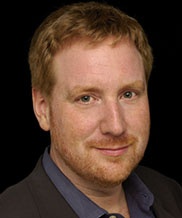
Bruce McCandliss is a Professor in the Stanford Graduate School of Education and (by courtesy) Department of Psychology at Stanford University. He studies developmental cognitive neuroscience, with an emphasis of questions of how the neural substrates of several cognitive abilities change via learning and education. His laboratory employs several diverse techniques to investigate cognitive change across development and learning, including training studies in adults and children, longitudinal research in school-age children, and naturalistic school-based studies observational and intervention studies.
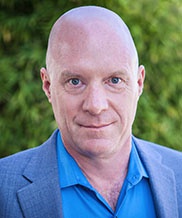
Lewis Johnson is an internationally recognized expert in AI in education. For his work on the the first Alelo immersive game, Tactical Iraqi, he won DARPA's Significant Technical Achievement Award. He has been a past President of the International AI in Education Society, and was co-winner of the 2017 Autonomous Agents Influential Paper Award for his work in the field of pedagogical agents. He has been invited to speak at many international conferences such as the International Conference on Intelligent Tutoring Systems, and presented a Distinguished Lecture at the National Science Foundation.

Michael Kirst is Professor Emeritus of Education and Business Administration at Stanford University. In 2011, Kirst became the President of the California State Board Of Education for the second time. Professor Kirst was a member of the California State Board of Education (1975/1982) and its president from 1977 to 1981. Before joining the Stanford University faculty, Dr. Kirst held several positions with the federal government, including Staff Director of the U.S. Senate Subcommittee on Manpower, Employment and Poverty, and Director of Program Planning and Evaluation for the Bureau of Elementary and Secondary Education in the U.S. Office of Education (now the U.S. Department of Education).
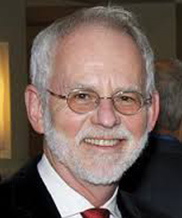
Roy Pea is the David Jacks Professor of Education and the Learning Sciences at Stanford University, Co-Founder and Faculty Director of the H-STAR Institute, Director of the PhD Program in Learning Sciences and Technology Design, and Professor, Computer Science (Courtesy). Since 1981, Dr. Pea has been exploring how information technologies can support and advance the scientific understanding and practices of learning and teaching, with particular focus on topics in science, mathematics, and technology education and their associated symbolic and communicative interchanges that are integral to learning.
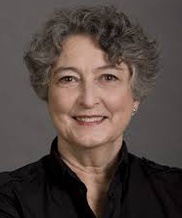
Martha Russell is Executive Director of mediaX at Stanford University and Senior Research Scholar with the Human Sciences Technology Advanced Research Institute at Stanford. She leads business alliances and interdisciplinary research for mediaX at Stanford University. With people and technology as the intersecting vectors. With a focus on the power of shared vision, Russell has developed planning/evaluation systems and consulted regionally and internationally on technology innovation for regional development.
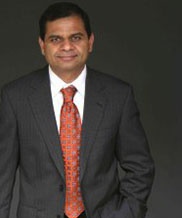
Vinay Chaudhri is formerly a program director in the Artificial Intelligence (AI) Center at SRI International. His research focuses on the science and engineering of large knowledge base systems and spans knowledge representation and reasoning, question answering, knowledge acquisition, and innovative applications. His most recent work has been on creating an intelligent textbook in biology that answers a student’s questions and leads to significant learning gains. He has also taught a course on Knowledge Representation and Reasoning at Stanford University.
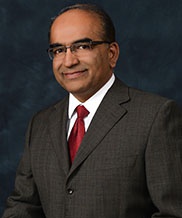
Prasad Ram ("Pram") started Gooru as a “20% project” while at Google to develop a “GPS for Learning” - where, students seeking learn a topic are presented with a learning "route" based on their profile and they are continuously “re-routed” based on their performance. In 2011, he established Gooru as a non-profit to bring the simplicity and universal usefulness of “Google Maps” - like experience to learning. Pram is a Council Member and Chair of the Education Committee at the California Council of Science and Technology (CCST). Pram is also a Board member at Leadership Public Schools (LPS).
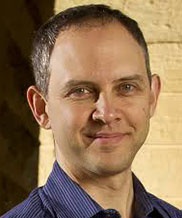
Paulo Blikstein is Assistant Professor of Education and (by courtesy) Computer Science at Stanford University. He is also the Director of the Tranformative Learning Technologies Lab. Blikstein's research focuses on how new technologies can deeply transform the learning of science, technology, engineering, and mathematics. He creates and researches cutting-edge educational technologies, such as computer modeling, robotics, digital fabrication, and rapid prototyping, creating hands-on learning environments in which children learn STEM disciplines by building sophisticated projects and devices.

Kaisa Still is a Senior Scientist at VTT Technical Research Centre of Finland. Supporting collaboration with technology continues to be at the core of her career. Her current research concentrates on platforms and innovation ecosystems, accelerating innovation activities and on digital opportunities. Combined with the policy perspective, her work extends to both private and public organizations, in regional and global contexts. She has extensive industry experience in Finland, USA and China.

Hannes Rothe is an assistant professor at the department of information systems, Freie Universitat Berlin. His current research focuses on educational service engineering and IT-entrepreneurship. As such, he is very much interested in the role of digital technologies on changing platform and innovation ecosystems. Since 2013, he's coordinated the development of entrepreneurship education at FU Berlin. Together with a strategic alliance of European partners, he focuses on supporting the entrepreneurial mindset of young academics.

Neil Rubens is a Professor at the Transport and Telecommunications Institute, working on Machine Learning (at the Department of Computer Science) and Industry Analysis (at the Department of Management). He founded startup (sectorMap.net) that is developing tools for cross-industry analysis based on research on innovation ecosystems. He is a founding member of Innovation Ecosystems Network (IEN) and has also spent time as a Visiting Scholar with mediaX at Stanford University.
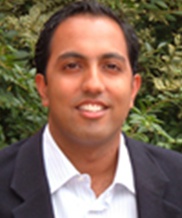
Rahul Basole is an Associate Professor in the School of Interactive Computing, the Associate Director of the Tennenbaum Institute/IPaT, and a faculty member in the GVU Center at Georgia Tech. He is also a Visiting Scholar in the mediaX/H*STAR Institute at Stanford University. His research and teaching focuses on computational enterprise science, information visualization, and strategic decision support. Current research includes the design, development, and application of novel visual analytic tools for understanding complex business ecosystems and enterprises in a diverse set of industries including technology, healthcare, energy, and global manufacturing.
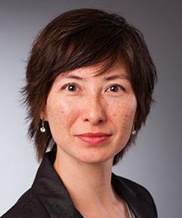
Tamara Carleton is a global leader in helping organizations to create vision-led, radical innovations. She is the CEO and founder of Innovation Leadership Board LLC and lead author of the Playbook for Strategic Foresight and Innovation. At the Foresight & Innovation lab at Stanford she explores how the world’s most innovative companies create technology visions and take action. She is an instructor with Stanford University’s Continuing Studies program, an Adjunct Professor at American University, and a Visiting Professor at Waseda Institute of Technology in Japan.

Jennifer House, Ph.D. is President of RedRock Reports, an education funding services company. A noted education market leader, Dr. House is a former teacher, reading specialist, school district administrator and educational technology innovator. In addition to heading up the Curriculum Department for the Cupertino Union School District in CA, she also led engineering education and marketing programs for Hewlett-Packard, managed K-12 marketing programs for Apple Computer, held executive positions with Tenth Planet, Classroom Connect, and other leading K-12 organizations.

Michael Carter specializes in the strategy, design and development of learning solutions based on emerging technology. He at one time professed history at Dartmouth College; helped Stanford faculty create exemplary instructional applications; directed education research in Apple’s Advanced Technology Group; produced Oxford, Stanford and Yale’s online offerings for their alumni; and, edited and published research on digital media and learning for the MIT Press. He has designed and produced games for kids and grownups about history, science, mathematics, storytelling, executive function, conservation and ecology.